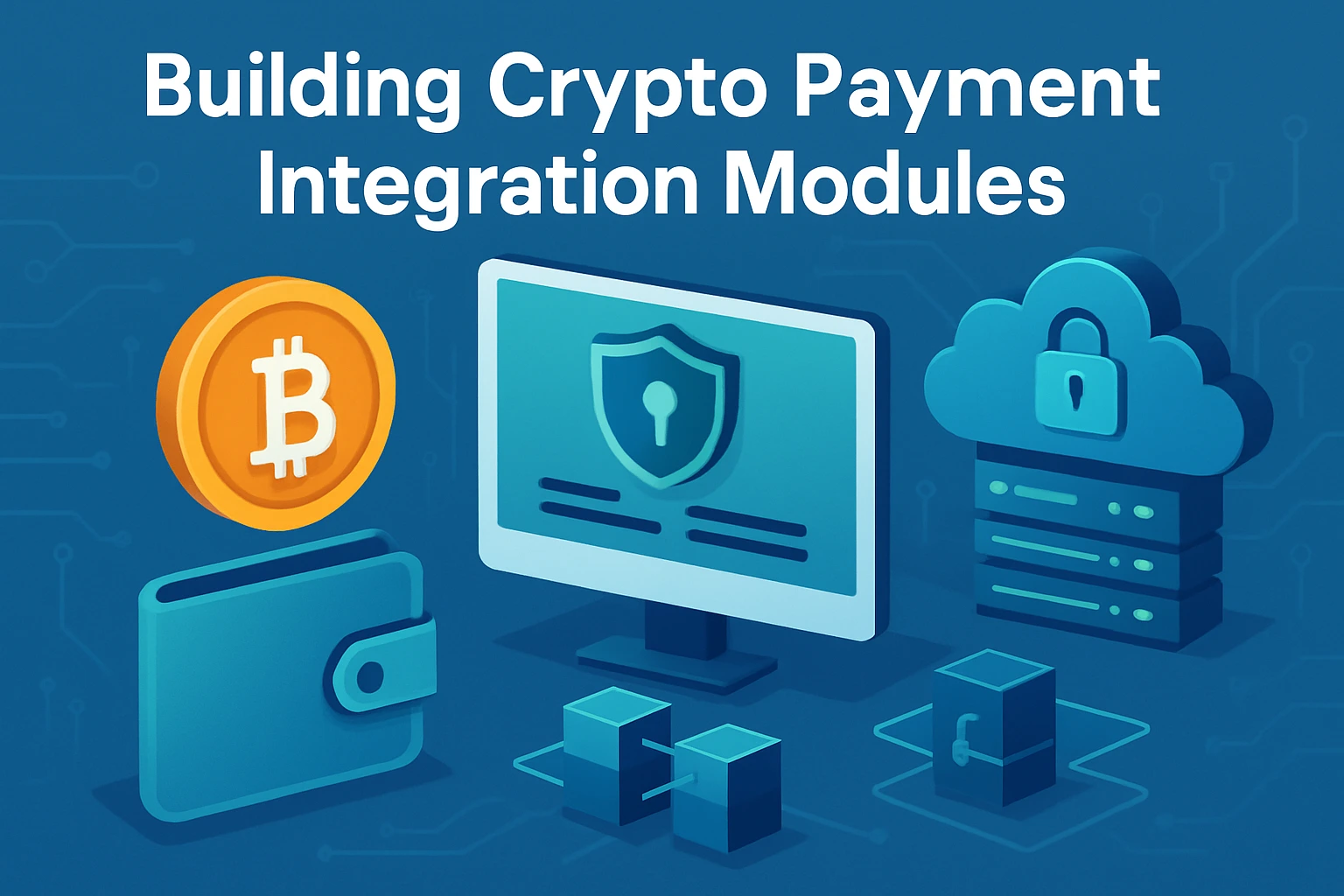As the world transitions toward digital and decentralized finance, integrating cryptocurrency payment modules into your platform isn’t just an innovation—it’s a competitive advantage. Whether you’re building a SaaS product, running an HYIP platform, or operating a global ecommerce solution, adding crypto payment capabilities can help expand your market reach, reduce transaction costs, and provide secure, fast settlements. In this blog, we’ll walk you through the key considerations, components, and architecture needed to build a robust crypto payment integration modules that is secure, scalable, and developer-friendly.
Why Integrate Crypto Payments?
✅ Expand Global Reach
Crypto payments remove the barriers of cross-border transactions and traditional banking systems.
✅ Lower Transaction Fees
By using decentralized networks, you avoid hefty intermediary charges from banks and gateways.
✅ Faster Settlements
No more waiting for banking hours—crypto transactions can be processed 24/7, near instantly.
✅ Enhanced Security
Blockchain-based transactions provide immutability and transparency, reducing fraud risks.
Key Components of a Crypto Payment Module
To build a secure and reliable crypto payment module, you’ll need to architect it with several key layers:
1. Wallet Integration
Choose between:
-
Hot wallets: connected to the internet (fast but less secure)
-
Cold wallets: offline storage (more secure for large balances)
Use well-supported libraries or APIs (like MetaMask, WalletConnect, or Coinbase Wallet SDK) for seamless integration.
2. Blockchain Network Connector
Support for major blockchains like:
-
Ethereum (ERC-20)
-
Bitcoin
-
Binance Smart Chain (BEP-20)
-
Solana, Polygon, or Layer-2s as per business requirements
Use node providers like Infura, Alchemy, or Moralis for reliable network access.
3. Currency Conversion API
Convert crypto amounts to fiat or stablecoins using real-time market rates.
-
Tools: CoinGecko API, CoinMarketCap API, CryptoCompare
4. Smart Contract Interaction Layer
For platforms accepting custom tokens or needing escrow logic, smart contracts become essential.
-
Audited contracts ensure trust and eliminate manipulation.
5. Transaction Monitoring
Real-time tracking of transaction hash (TxHash), block confirmations, and event triggers.
Security & Compliance Considerations
Security is non-negotiable when dealing with digital assets. Here’s how to secure your crypto payment infrastructure:
-
End-to-End Encryption: Encrypt all transaction and wallet data during transit and at rest.
-
Two-Factor Authentication: Secure user wallets and withdrawals.
-
Audit Trails: Maintain detailed logs of every transaction.
-
KYC/AML Integration: Add identity verification through tools like Jumio or SumSub if you’re dealing with fiat conversions.
-
Rate Limiting & IP Monitoring: Prevent bot attacks and abuse.
Example Use Cases
🔹 SaaS Platforms
Offer subscription payments using stablecoins (like USDT, USDC), minimizing volatility and expanding reach in crypto-savvy regions.
🔹 HYIP & Investment Platforms
Integrate multi-wallet support for Bitcoin, Ethereum, and other altcoins with automatic deposit tracking and withdrawal handling.
🔹 Ecommerce & Marketplaces
Enable crypto checkouts alongside traditional methods with QR code payments and live conversion rates.
Tech Stack for Crypto Module
Here’s a commonly used stack to integrate and build a crypto payment system:
| Layer | Tools/Tech Stack |
|---|---|
| Frontend | React.js, Vue.js, Next.js |
| Wallets | MetaMask, Trust Wallet, WalletConnect |
| Blockchain Access | Web3.js, Ethers.js, Infura, Alchemy, Moralis |
| Backend | Node.js, NestJS, Laravel (PHP), Python (FastAPI) |
| Smart Contracts | Solidity (Ethereum), Rust (Solana) |
| Security Layer | SSL, JWT, OAuth2.0, Firewall, Rate Limiting |
Open Source Crypto Payment Gateways (Optional Start Points)
You can start with or customize from these FOSS modules:
-
BTCPay Server – Full node, open-source Bitcoin payment processor
-
CryptoWoo – WooCommerce crypto payments plugin
-
NowPayments API – Easy-to-integrate SaaS for accepting multiple cryptocurrencies
External Resources & APIs
Challenges to Consider
-
Network Congestion: Slow confirmations and high gas fees during peak hours.
-
Volatility: Need for stablecoin options or instant conversion to fiat.
-
Regulatory Landscape: Stay updated on crypto compliance in different countries.
Conclusion: Build for Scale & Trust
Crypto payment modules aren’t just a trend—they’re the future of digital transactions. Whether you’re creating a financial app, investment dashboard, or a modern e-commerce experience, integrating crypto not only adds value but positions your product as future-ready.
Partner with experts who understand both blockchain infrastructure and financial system compliance to ensure a smooth, secure implementation.
Need Help Building Crypto Modules?
At GegoSoft, we’ve helped platforms across industries integrate secure and scalable crypto solutions—from wallet management to full-fledged DeFi systems.
👉 Contact us today to explore a tailored crypto payment integration for your business.

